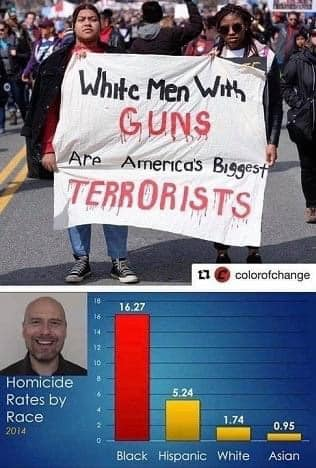
Consider this report by Stuff on the recent Buffalo shooting. Notice how we’re told that the gunman was white, nine out of the 11 victims were black and that the attack was racially motivated.
Here’s an excerpt from another report by the mainstream media:
A white 18-year-old wearing military gear … opened fire with a rifle at a supermarket in Buffalo, killing 10 people … in what authorities described as “racially motivated, violent extremism”.
Police said he shot 11 black and two white victims …
“It is my sincere hope that this individual, this white supremacist …”
NZ Herald
You might have missed that the gunman was white, the victims black and the attack was racially-motivated, but somehow I don’t think so.
Now consider this report by Stuff on the Brooklyn subway shooting. Notice how we’re not told the race of the gunman who is described as “a man” (we only know that he was black from a photo in the article). Nor are we told what race the victims were.
Readers of the BFD will know, thanks to BFD writer Lushington D. Brady’s article, that not only the gunman was black, but also the victims were Asian, and the attack was most certainly racially motivated.
So in one case of a mass shooting, the race of the attacker and the victims is important, as well as the fact that the attack was racially motivated. In the other case, not so much.
Why the difference? Could it be because, and I’m just putting it out there, in the first example the attacker was white and in the second the perpetrator was black? Could it also be because, and again I’m only putting it out there, the fact that in the first example the attack was racially motivated is important only because the attacker was white and the victims nonwhite?
And in the second example, would Stuff have been so hesitant to tell us the race of the gunman, and that the attack was racially motivated, if the attacker had been white?
But like I say, I’m just putting it out there.
